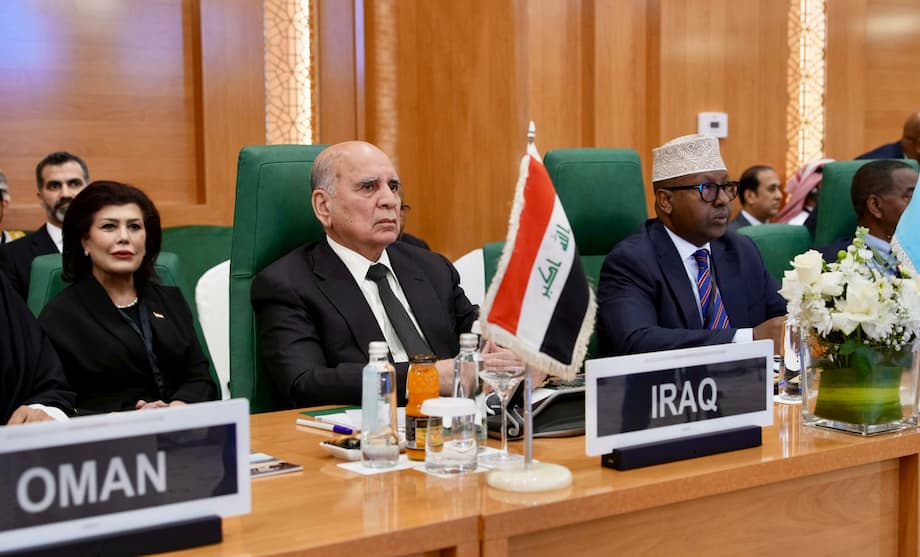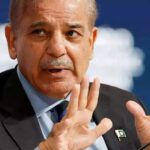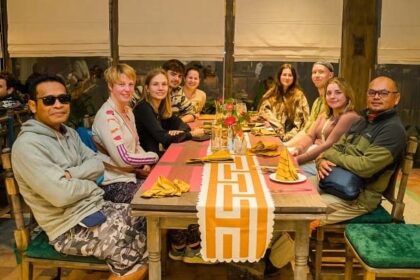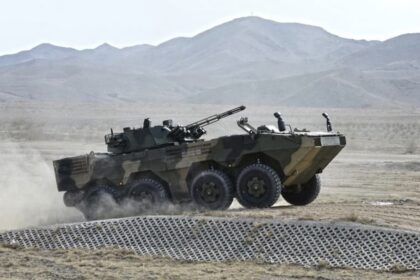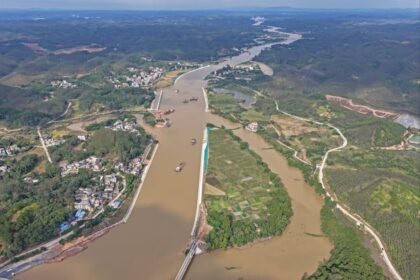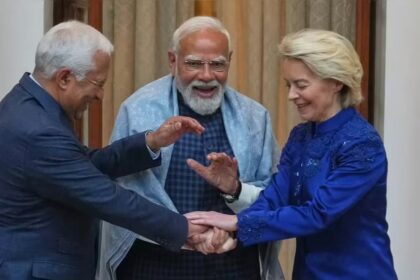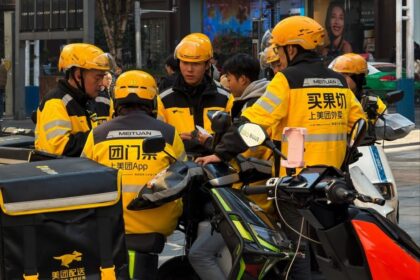A rare emergency meeting puts Gaza at the center
Indonesia used an emergency meeting of the Organisation of Islamic Cooperation in Jeddah to demand unified action against what it described as plans for the permanent occupation of the Gaza Strip and deeper entrenchment in the West Bank. Convened in late August and chaired by Turkey, the session drew representatives from 43 of the 57 OIC member states and focused on both the worsening humanitarian crisis in Gaza and the political trajectory of the conflict. Indonesian delegates urged member governments to use all available diplomatic and economic tools to stop Gaza from being absorbed under full Israeli military control.
- A rare emergency meeting puts Gaza at the center
- What Indonesia asked OIC members to do
- Greater Israel enters the spotlight
- Humanitarian crisis in Gaza drives urgency
- Turkey urges coordinated pressure
- The legal frame: occupation, annexation and starvation rules
- Indonesia’s wider diplomacy on Palestine
- Outcomes from Jeddah and what they mean for policy
- Can statements be turned into results
- What comes next
- Key Points
The call came after recent remarks by Israeli Prime Minister Benjamin Netanyahu endorsing the idea of expanding Israeli control in line with the concept commonly referred to as Greater Israel. The phrase has long been used in political discourse to describe a project that would extend Israeli borders far beyond internationally recognized lines. Those comments triggered strong objections across the region. Arab governments, along with broader Muslim and international audiences, framed the idea as incompatible with international law and regional stability.
The humanitarian emergency in Gaza framed every discussion at the Jeddah meeting. Nearly two years into intensive hostilities and siege conditions, Gaza faces widespread hunger and disease, a collapse of basic services, and mass displacement. The United Nations has said Gaza has entered a state of total famine. The World Health Organization reported in May that nearly half of Gaza’s approximately 2.1 million people are in catastrophic situations, with extreme hunger, acute malnutrition, illness and rising mortality. Water, electricity and health systems across much of the territory have failed under the pressure of conflict and isolation.
Efforts by states and international agencies to deliver relief have been repeatedly hindered. The United Nations has documented severe obstacles at crossings and checkpoints and reported that some desperate residents resorted to looting to find food and supplies. For many OIC states, these conditions demanded an extraordinary diplomatic push to open reliable aid routes and halt a slide into deeper tragedy.
What Indonesia asked OIC members to do
Indonesia’s delegation urged OIC governments to mobilize their collective strength and resources to stop annexation moves in Gaza and check settlement expansion in the West Bank. Indonesian Deputy Foreign Minister Anis Matta said OIC members should agree on a united mechanism capable of safeguarding the security and sovereignty of countries in the region, while pressing for a real end to occupation policies.
A call to use all available tools
Jakarta pressed the OIC to work with international organizations to end the war in Gaza and to establish dependable pathways for humanitarian deliveries by land, air and sea. Indonesian officials pointed to a global shift in public opinion on Palestine and urged OIC capitals to use that momentum to campaign for broader recognition of Palestinian statehood. They also proposed that the UN Security Council convene a special session aimed at ending Israel’s occupation of Gaza and the rest of the Palestinian territory.
Introducing his remarks on the humanitarian emergency, Anis Matta condemned the use of hunger in warfare.
Anis Matta, Indonesia’s Deputy Foreign Minister, said: “There is nothing worse than using starvation as a weapon of war and genocide against our brothers and sisters in Gaza.”
Indonesia framed the Jeddah gathering as a moment to raise diplomatic costs for any attempt to redraw borders by force. It also pressed member states to intensify lobbying at the UN General Assembly and other forums to secure urgent aid access and to build backing for Palestinian rights.
Greater Israel enters the spotlight
The concept often described as Greater Israel sits at the heart of the current diplomatic storm. Historically, the term has been used in political and academic debate to refer to ambitions that would extend Israeli control well beyond the state’s internationally recognized borders. References to absorbing Gaza, the West Bank and parts of neighboring countries feature in that discourse, which is why it alarms regional governments.
For OIC members, this vision signals a threat to the sovereignty and security of states across the Middle East. Indonesian officials warned that any attempt to turn such ideas into policy would heighten regional instability, fuel conflict spillover and erode the legal framework that has guided Arab–Israeli diplomacy for decades.
The Jeddah meeting’s closing statement rejected plans to impose full military control over Gaza, describing such a move as a dangerous escalation. Attendees framed it as an effort to consolidate an unlawful occupation by force. They also called for the lifting of the siege and condemned policies that they said amount to starvation, widespread destruction and forced demographic displacement.
Humanitarian crisis in Gaza drives urgency
Humanitarian agencies have documented rising malnutrition, outbreaks of preventable disease and the shrinking availability of clean water. The United Nations described Gaza as entering a state of total famine, which signals extreme levels of food insecurity and malnutrition spanning a large part of the population. These conditions align with prolonged disruption of markets and aid flows, as well as the collapse of core health, sanitation and power infrastructure.
How famine is defined
In humanitarian practice, famine represents the most severe category of a food emergency, when hunger and malnutrition reach levels associated with very high mortality. It typically reflects a situation in which food access has fallen far below basic needs for a sustained period, medical services cannot cope with disease and injury, and a population is trapped by violence or restrictions that block relief. In such circumstances, experts urge rapid, large scale aid operations and an end to hostilities that prevent deliveries.
In Gaza, both the flow of trucks carrying food and medicine and the functioning of hospitals have been constrained by conflict conditions and access limitations. Relief groups describe a patchwork of aid routes that often close without warning. UN updates have referenced inspection delays, security concerns and infrastructure damage that complicate deliveries. With formal access channels weak or blocked, desperate families sometimes search warehouses, shops and aid convoys for anything edible.
Turkey urges coordinated pressure
Turkey, which chaired the Jeddah session, echoed Indonesia’s message. Foreign Minister Hakan Fidan called for coordinated pressure by OIC states to halt what he described as annexation efforts and to force open reliable aid channels. He said Gaza’s hunger was man made and argued that blocking assistance violates basic legal and moral principles.
Hakan Fidan, Foreign Minister of Turkey, said: “Obstruction of aid is a crime against humanity.”
Turkish officials also pointed to the OIC Council of Foreign Ministers meeting in Istanbul as a venue to build a broader response to the region’s accelerating crises, including the Israel–Iran confrontation. Coverage of that gathering highlighted the large turnout of foreign ministers, underscoring member states’ appetite for a coordinated approach that links the Gaza war and wider regional security.
The legal frame: occupation, annexation and starvation rules
Several core principles of international law sit at the center of this debate. The UN Charter prohibits the acquisition of territory by force. Occupation law, rooted in the Geneva Conventions, requires an occupying power to protect civilians, maintain basic services as far as possible and allow impartial humanitarian relief. Permanent annexation or measures designed to change the status of occupied territory violate these rules.
Settlement construction that transfers an occupying power’s civilian population into occupied territory is contrary to the Fourth Geneva Convention. Many governments view settlement expansion in the West Bank through this lens, citing a long record of UN resolutions that call such activity illegal. OIC states see the current moment as a test of whether those legal standards will be enforced.
International humanitarian law also bans starvation of civilians as a method of warfare. Parties must allow and facilitate rapid and unimpeded passage of relief for civilians in need, subject to lawful controls. When aid is systematically blocked, or when hunger is used as a tactic, legal experts consider it a grave breach and, depending on the circumstances, a potential crime under the Rome Statute of the International Criminal Court.
Indonesia’s wider diplomacy on Palestine
Indonesia’s position on Palestine has been consistent for decades. It does not maintain diplomatic relations with Israel and supports Palestinian statehood, a stance anchored in its Constitution and in repeated statements by successive leaders. At the OIC Summit in Banjul earlier in the conflict, Foreign Minister Retno Marsudi stressed that any peace would require an end to occupation and urged unity behind Palestinian rights, including the push for full UN membership. The summit adopted the Banjul Declaration, which reaffirmed support for Palestinian self determination and urged the international community to press for compliance with international law.
Indonesian analysts are urging Jakarta to step up at the United Nations. Muhammad Syaroni Rofii, a Middle East expert cited by the national press, argued that Indonesia should bring the Gaza hunger crisis before the UN General Assembly and rally the Non Aligned Movement behind a common position. He noted growing support for recognition of Palestinian statehood among Western governments, which Jakarta could translate into concrete diplomacy.
Indonesia has also worked with other Muslim majority countries on broader regional security. In recent months, 24 governments, including Indonesia, Saudi Arabia, Egypt, Pakistan and Malaysia, condemned Israeli strikes on Iran and called for an immediate ceasefire. Their joint message urged de escalation, respect for sovereignty and a regional zone free of nuclear weapons. These positions, while focused on a separate but related crisis, mirror the themes of the Jeddah OIC meeting on Gaza and show Indonesia’s willingness to engage across multiple fronts.
Jakarta has paired its diplomacy with practical steps to protect citizens caught in regional turmoil. The Indonesian Foreign Ministry raised alert levels at its embassy in Tehran and prepared evacuation plans as Israel–Iran hostilities escalated, signaling the government’s readiness to respond to fast changing security dynamics while continuing to press the case for Palestinian rights.
Outcomes from Jeddah and what they mean for policy
The Jeddah meeting ended with a joint statement calling for an immediate halt to Israeli attacks, the lifting of the siege on Gaza and explicit condemnation of starvation, large scale destruction and forced demographic displacement. Delegates rejected any plan to impose full military control over Gaza, calling it a dangerous step that would entrench occupation by force. The text urged international organizations, including the United Nations, to act swiftly to protect civilians and to ensure the regular flow of aid.
Representatives from 43 OIC member states attended, including 21 foreign ministers alongside the Palestinian foreign minister. According to Indonesian and Turkish accounts, the resolution unified positions on Gaza annexation, highlighted the humanitarian emergency and committed members to intensify diplomatic pressure in global forums.
On the sidelines, Indonesian Deputy Foreign Minister Anis Matta met his Iraqi counterpart to explore economic and investment cooperation. Jakarta sees such bilateral ties as part of a broader strategy to build common interests that can support shared positions at the OIC and the United Nations.
Can statements be turned into results
Turning declarations into policy will require coordination and persistence. Analysts sympathetic to Indonesia’s stance argue that OIC governments have tools they can use together. These include building a bloc at the UN to push for emergency sessions and resolutions, mounting a recognition drive for Palestinian statehood, supporting international legal action aimed at accountability and organizing reliable humanitarian corridors monitored by impartial agencies. Some voices in regional commentary have urged stronger measures that would increase political and economic pressure on Israel, while pushing for prosecution of grave crimes where evidence supports such cases.
The OIC also must navigate internal differences. Member states face varied national interests, security concerns and external partnerships. Some have explored or maintained quiet contacts with Israel, while others reject any normalization without an end to occupation. This reality makes coordination challenging. It also means that practical steps, such as synchronized diplomatic pressure, more unified messaging and shared support for humanitarian operations, are likely to be the most achievable near term outcomes of the Jeddah push.
What comes next
All eyes now turn to New York and Istanbul. Indonesia wants the UN Security Council to convene a special session on Gaza and Israeli occupation. Diplomats also anticipate that the UN General Assembly could see new initiatives, including motions to spotlight Gaza’s famine and to widen recognition of Palestinian statehood. The OIC Council of Foreign Ministers session in Istanbul is expected to review next steps, coordinate with the Arab League and discuss mechanisms to keep aid flowing and de escalate regional tensions. Whether through the OIC, the Arab League or the UN system, the goal shared by many governments is immediate relief for Gaza’s civilians and a political track grounded in international law.
Key Points
- Indonesia urged OIC members in Jeddah to mobilize resources to stop Gaza annexation and curb settlement expansion in the West Bank.
- The emergency session, chaired by Turkey, brought together representatives from 43 OIC states and focused on Gaza’s worsening famine and security risks.
- References by Israel’s prime minister to the Greater Israel concept drew regional condemnation and sharpened OIC concerns over border expansion.
- The OIC’s joint statement demanded an immediate halt to attacks, a lifting of the Gaza siege and condemned starvation, destruction and forced displacement.
- Jakarta called for a UN Security Council special session and urged a wider campaign for recognition of Palestinian statehood.
- The UN has described Gaza as in a state of total famine, while the WHO warned that nearly half of residents face catastrophic hunger and disease.
- Relief operations remain obstructed by access restrictions and insecurity, prompting calls for dependable aid corridors.
- Turkey’s foreign minister said obstruction of aid is a crime against humanity and urged coordinated pressure to stop annexation.
- Analysts in Indonesia suggest bringing the Gaza hunger crisis to the UN General Assembly and rallying the Non Aligned Movement.
- OIC coordination continues, including a high level meeting in Istanbul that will address Gaza and broader regional security.


